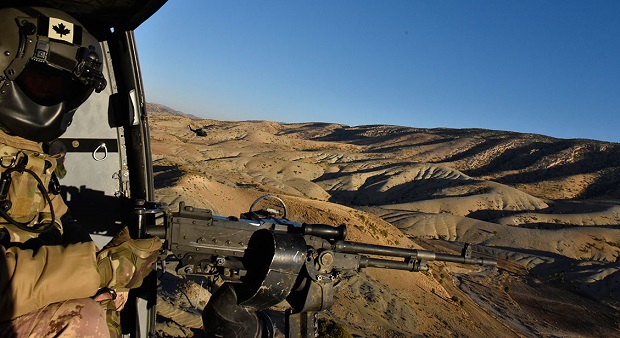Canadian military training missions in northern Iraq against ISIS will continue until the end of June this year beyond its earlier deadline .
Coalition forces have been making gains against the terrorist group, also known as Daesh and the extension will provide the Government of Canada “the time required to assess the evolving nature of the fight,” according to a press release from the Department of National Defence.
Earlier this month the government also announced that it will continue to send soldiers to Eastern Europe in order to train Ukrainian troops for two more years in the face of continuing Russian military aggression in the region. The mission’s original deadline was March 31st this year.
“As a result of recent successes in the campaign, some elements of the Canadian Special Operations Task Force have recently been operating in eastern Mosul, providing advice and assistance to Iraqi Security Forces,” the release said.
This signals a significant shift in focus for the CAF. Previously, Canadian troops worked with Kurdish Peshmerga fighters in the north and east. Canadian soldiers tended to avoid Mosul and spent less time with Iraqi soldiers.
Related Content
Russian aggression prompts Canada to extend Ukraine mission
Anti-ISIS meeting held in Washington
Are Canadian soldiers in the front lines in Mosul?
034 | Autonomous Underwater Vehicles, Game Changers, and Operation Impact
According to the military some 3,600 CAF personnel have taken part in rotating assignments as part of Canada’s involvement in the battle against ISIS. Canadian CF-18 fighter planes have carried out 695 aerial refueling operations and 753 reconnaissance missions before they were pulled out recently.
Canadian troops are also involved in helicopter transport, medical support, and capacity building.
There are also a number of Canadian special forces soldiers training Iraqi troops and performing intelligence operations.
“It is clear that Coalition efforts are having a real impact on the ground. Canada has made significant progress working alongside Allies and partners to help provide security and stabilize the region, but we must be ready to adapt to the changing dynamics of the conflict,” said Defence Minister Harjit Sajjan. “With these factors in mind, Canada will continue to work with Coalition partners to identify needs and to assess how we can best contribute Canadian capabilities to dismantle and ultimately defeat Da’esh.”
Gen. Jonathan Vance, chief of defence staff, said that due to the recent advances in the international campaign, Canadian Special Operations Forces elements are now advising and assisting Iraqi Security Forces in the campaign to rid Mosul of Da’esh.
“The mission may change further as the situation evolves and Canadians should expect further adjustments as the situation warrants,” he said. “Canadians should be proud of the multifaceted and essential contributions Canadian troops are making both in the battle for Mosul and across the theatre of operations.”

